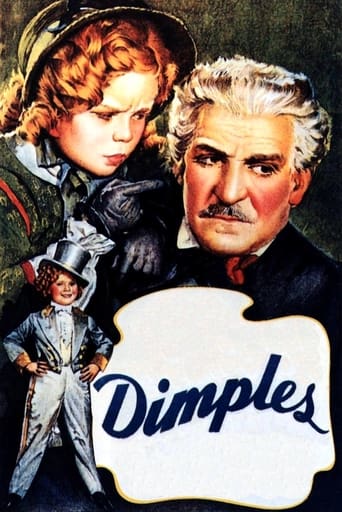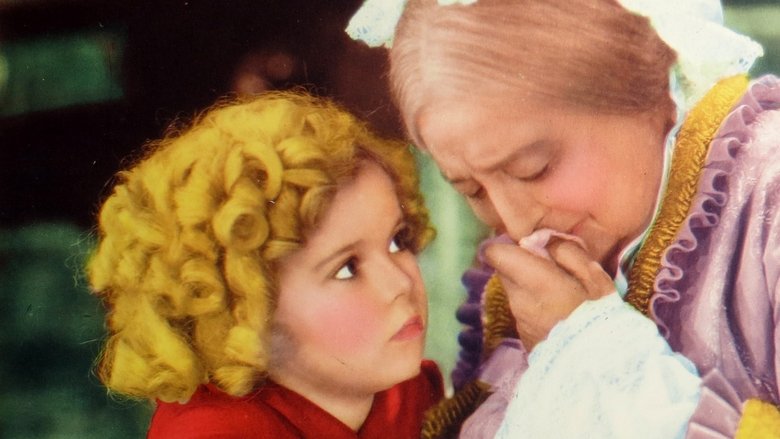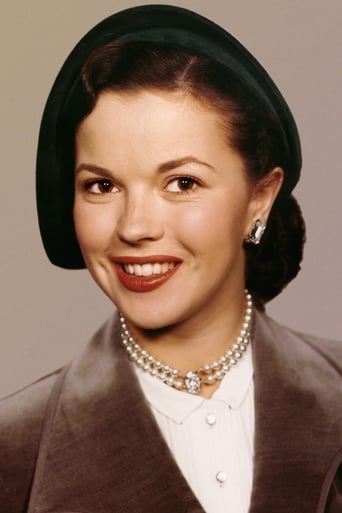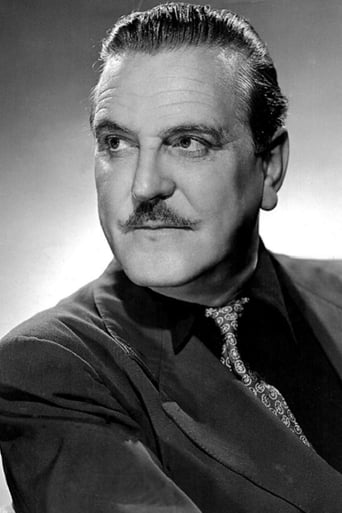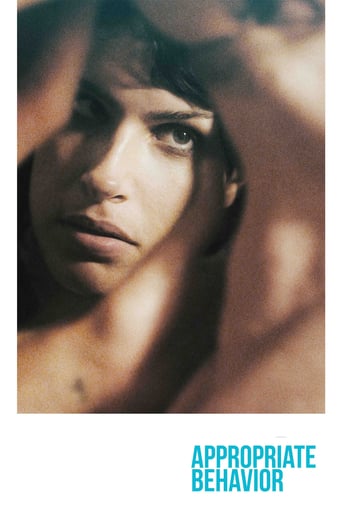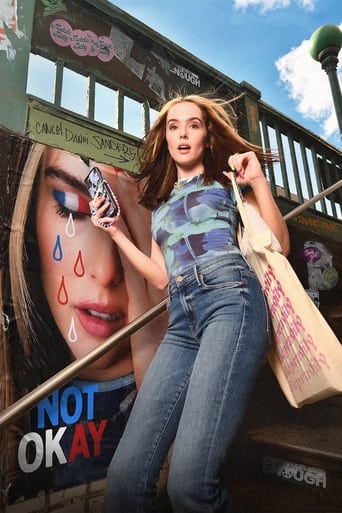Dimples (1936)
Dimples Appleby lives with her pick-pocket grandfather in 19th century New York City. She entertains the crowds while he works his racket. A rich lady makes it possible for the girl to go legit.
Watch Trailer
Cast


Similar titles
Reviews
Powerful
Very interesting film. Was caught on the premise when seeing the trailer but unsure as to what the outcome would be for the showing. As it turns out, it was a very good film.
A movie that not only functions as a solid scarefest but a razor-sharp satire.
It is a whirlwind of delight --- attractive actors, stunning couture, spectacular sets and outrageous parties. It's a feast for the eyes. But what really makes this dramedy work is the acting.
WARNING: Several blackface musical numbers are included. If sensitive to such, best not to view this film or close your eyes during these portions. Our story takes place in 1852 in NYC. The screenplay is driven by several conflicts, There's the conflict between wealthy Mrs. Drew and her nephew Allen over the worth of plays and actors. Allen, who is interested in theater, and in marrying an actress, gets no financial help from Drew for his theater projects. Furthermore, she says if he persists in marrying an actress, he will not then be welcome into her house. Allen also has to decide definitely which actress he wants to marry, as he has recently changed his mind several times.The major conflict is between Shirley's desire to obtain the finer things in life and an education , by living with Mrs. Drew, or to continue living with her grandfather "The Professor", in his apartment in the slums, where there are lots of kids and dogs to play with and perform street entertainment for change. Mrs. Drew offers $5000. to "buy" Shirley. The Professor initially rejects this temping offer, but later accepts it to replace the $800. he lost on an antique swindle he fell for that was supposed to pay for the startup of a show: "Uncle Tom's Cabin". But Shirley finds she's very lonely without her grandfather, her dog, and the neighbor kids to play with. She suggests that her grandfather marry Mrs. Drew as the obvious solution, but this isn't taken seriously. Thus, The Professor gives back the $5000., but sells her his worthless "antique" watch for $1000., enough to cover his debt. Too late, she asks an antique expect, who tells her it's worthless. She calls for police to arrest him. They find him functioning as the director's aid in a performance of "Uncle Tom's Cabin". He dons blackface and extra clothes for Uncle Tom, and goes out on the stage when cued, but the real Uncle Tom player goes on the stage at the same time. He is caught; however, Mrs. Drew decides to stay for the rest of the show. She's very impressed with the play, and especially Shirley's part(Elyza)in it, and changes her mind about the worth of plays and actors. This may mean that Allen can get married to an actress without her disapproval. Also, she drops the swindle charge against The Professor , deciding that the $1000. she lost was worth it. The Professor kisses her neck, suggesting the possibility of a marriage, as Shirley hoped....Helen Westley, who played Mrs. Drew, was generally pleasant in her role when not forced to sponsor plays or when being swindled. She played matronly authoritarians mostly, and is an important character in 3 other S.T. films.The film begins with a street performance by Shirley and the neighbor kids, singing and dancing to "Hey, What did the Blue Jay Say?" Later, Shirley , along with 2 African Americans, dance to "He was a Dandy". When Shirley is considering leaving her grandfather, she sings "Picture Me Without You".. Later, she sings the African American spiritual "Get on Board", with a blackface chorus behind her. The minstrel show after the play consists of Shirley singing and dancing in front of a large chorus of men in blackface, at least one of whom: Stepin Fetchit was an African American in blackface! The song was Dixie-anna, quite catchy for a show song.
For a wide variety of reasons, "Dimples" is among the poorest of Shirley Temple's full-length films. The characters are often quite unlikeable and there are MANY segments that simply made me cringe due to the film's racial insensitivity.Dimples (Temple) lives with her no-good grandfather (Frank Morgan). Grandpa makes his living cheating people and picking pockets--yet somehow we are expected to somehow care about him. An old lady (Helen Westley) thinks Dimples is simply adorable (as did all of America in 1936) and wants to buy her from Grandpa! Now Grandpa tries to change his evil ways and care for her but he soon loses Allen Drew's money he entrusted to him and ends up considering the old lady's offer! In the meantime, there is a show to put on--and seeing all the black-faced folks putting on a minstrel show is quite a treat! And, it's sure to cause some viewers to have heart attacks.While the minstrels and the addition of Stepin Fetchit are NOT unique to this Temple film (in "The Littlest Rebel" Shirley herself is in black-face and Willie Best does his best Fetchit imitation), it's made worse by a cast of characters you simply cannot like. All in all, a clear misfire by the studio and a far from satisfying family film.
While most of Shirley Temple's movies are quite cute and quaint, there were too many cringe-inducing factors in this one to recommend it. From the outset, it is hard to feel anything but disdain for Frank Morgan's character. The Professor, as he's known in the film, is the grandfather of "Dimples", and her sole guardian. He's a thief and a swindler, and, even though he knows his actions hurt his little granddaughter, he refuses to mend his ways. One hopes for the entire movie that she will eventually leave him behind. Sadly, it never happens, and one can only imagine what type of life she will lead as she grows older.Another cringe-inducting factor about the film is large number of scenes which involve black-face. Now let me first state that I am NOT one who promotes political correctness when it comes to old movies, or one who gets upset at the slightest thing which could be taken as "racist". I enjoy the actors Stepin Fetchit (who also happens to be in this movie) and Willie Best, have seen most of the Charlie Chan movies, and get royally ticked off when one of the DVD studios (usually Warner Brothers) warns me that what I'm about to watch is "wrong now, and was wrong then". I recognize old movies are a sign of their time. I don't need to be lectured like an elementary school student.However, I have to believe that even in 1936, I would have felt a little uneasy with all of the black-face scenes in this film. The one with "Topsy" made me especially uncomfortable.That said, there were still some good moments in the film. Shirley's dancing numbers were, as usual, quite enjoyable, and Stepin Fetchit was as funny as always. However, if I were rating Shirley Temple films, this would be at the bottom of the long list of her movies I have seen to date.As for the DVD, I viewed the Fox release from 2006. I understand from other reviews on-line that the picture is superior to the previous Fox release in 2002. However, that must mean that the 2002 release was mighty poor, as the newer one still has moments when the picture is extremely soft, or extremely dark. Still, overall, it is a has a very watchable picture.The extras include only two trailers for other Temple movies, a very short Movietone news clip, and a colorized abomination of the film in question. And, of course, Fox must insult the person who buys this film with a loud accusational anti-theft PSA before they even get to the menu.
Can you imagine Shirley Temple as one of the Bowery Boys? Well, here in 1852, she plays a ragamuffin street entertainer being raised by a pickpocket grandfather (lovable Frank Morgan). Dimples gets the attention of an aging society matron (equally lovable Helen Westley) who, for some reason, has a hatred of the theater and everything that it stands for. Her nephew (Robert Kent) wants to put on a Broadway production of "Uncle Tom's Cabin" and use Dimples for the role of Little Eva. Desperate for money after being cheated into buying a fake watch for $800 of the show's money, Morgan agrees to let Westley take Temple in for $5000.00. Eventually, he sells HER the fake watch for $1000 and stays on with her to be with Shirley. The show goes on but when Westley finds out that the watch was fake, she tries to have Morgan arrested. But then she sees Temple on stage dying as Little Eva and has to face both her hatred towards the theater and her decision to imprison Temple's grandfather.It's a predictable story with a few musical moments, including a minstrel show at the end that might raise a few eyebrows. But that was life in Hollywood in the 30's, and producers didn't think about who they might offend then, let alone the future. Add Stepin Fetchit as Westley's servant, and you have double the offense for some audiences.Minus this socially unaware concept fortunately gone (but available to be seen to show how wrong it was), "Dimples" is a cute little film that was made during Temple's heyday as Box Office gold. She's always been a little too cutesy pie for my tastes, but I can understand how late depression audiences could take her into their hearts as a sign of hope for the future. I much prefer the talents of the veterans here, Frank Morgan and Helen Westley, who manage to avoid being background furniture when sharing scenes with her. They are adorable. Here, they are the type of grandparents many audiences could relate to or desire for their own. Morgan, rascally yet undeniably charming, and Westley, somewhat cranky, but oh, that heart of gold, are well paired here. Both had very long careers in films, and Westley seems to have been overlooked as a major character player. She could play gruff characters like Parthy in 1936's "Show Boat" or be lovable like the blind grandmother opposite Temple in "Heidi". Try not to fall in love with her here or in the 1937 Loretta Young screwball comedy "Cafe Metropole". She's also wonderful in the 1934 version of "Anne of Green Gables".While not outstanding, "Dimples" is still quite likable in spite of its shortcomings. Overlook the bad taste of black-face and stereotypes and a cute little film emerges.

